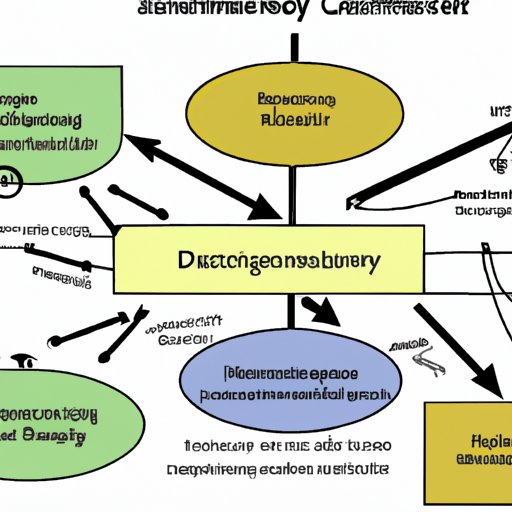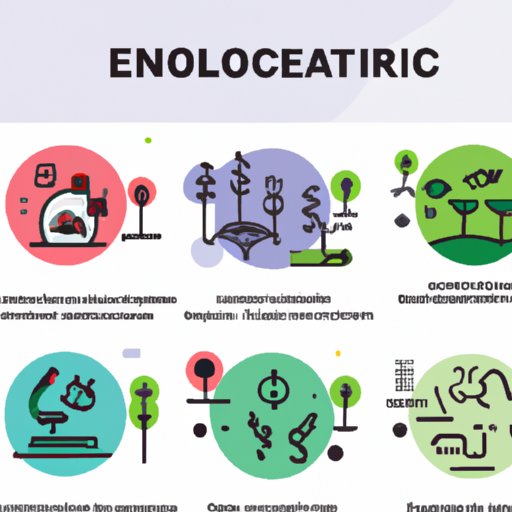Introduction
An ecosystem is defined as a dynamic complex of plant, animal, and microorganism communities and the nonliving environment, interacting as a functional unit. In science, the term is used to describe the intricate relationships between living organisms and their environment. This article provides a comprehensive guide to exploring ecosystems in science, from their interconnected nature to their role in scientific research and benefits for understanding of environmental issues.
A Comprehensive Guide to Ecosystems in Science
Ecosystems are intricately connected and interdependent systems. They are composed of numerous species, each of which plays an important role in maintaining the balance of the system. According to the National Oceanic and Atmospheric Administration (NOAA), “all components of an ecosystem—including living organisms, physical features, and chemical cycles—are interconnected and rely on one another to maintain balance.”
The role of ecosystems in scientific research is to provide a better understanding of the environment and its impact on human activity. Scientists study the interactions between different species and how they affect the overall functioning of the ecosystem. Research into these relationships can help us gain insight into the effects of human activity on natural systems and the Earth’s environment.

Understanding Ecosystem Dynamics in Science
In order to understand the dynamics of an ecosystem, it is important to investigate the impact of human activity on it. Human activities such as logging, overfishing, and pollution can have a detrimental effect on ecosystems, leading to a decrease in biodiversity and an increase in pollutants. By studying the interactions between different species, scientists can gain insight into how human activities can alter the balance of an ecosystem and the impacts this has on the environment.
In addition to investigating human activity, scientists also analyze the components of an ecosystem and their interactions. For example, they may look at how predators interact with prey, or how plants interact with animals to produce food. By studying these interactions, scientists can gain a better understanding of how an ecosystem functions and how it responds to external pressures.

Examining the Benefits of Studying Ecosystems in Science
Studying ecosystems in science can lead to a number of benefits. For example, by gaining a better understanding of the interactions between different species, scientists can develop improved insights into environmental issues such as climate change and biodiversity loss. Additionally, studying the dynamics of an ecosystem can help scientists identify ways to mitigate the impacts of human activities on natural systems.
Furthermore, studying ecosystems in science can also lead to a greater understanding of biodiversity. By examining the interactions between different species, scientists can gain insight into how species are adapted to their environment and how they interact with each other. This knowledge can be used to develop strategies for conserving biodiversity and protecting vulnerable species.
Finally, studying ecosystems in science can also lead to increased awareness of climate change. By looking at how different species interact with each other and their environment, scientists can gain a better understanding of how climate change is impacting the planet. This knowledge can then be used to develop strategies for mitigating the impacts of climate change.
Conclusion
In conclusion, studying ecosystems in science can lead to a number of benefits. By understanding the interconnected nature of ecosystems, their dynamics, and their role in scientific research, scientists can develop improved insights into environmental issues, greater understanding of biodiversity, and increased awareness of climate change. Through this knowledge, we can develop strategies for protecting our planet and preserving its fragile ecosystems.
(Note: Is this article not meeting your expectations? Do you have knowledge or insights to share? Unlock new opportunities and expand your reach by joining our authors team. Click Registration to join us and share your expertise with our readers.)
